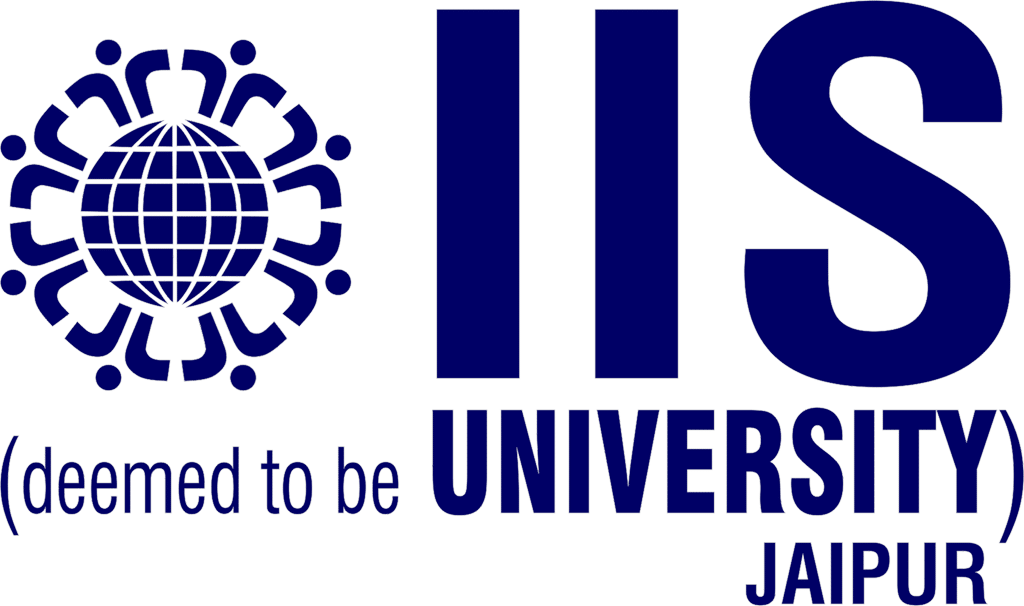Table of Contents
ToggleDo you lack a clear life goal?
Do you want to work in a field where biology and technology meet?
Stop searching now! Science is evolving rapidly, creating a significant need for biotechnology professionals. We guarantee that in 2024, there will be more to earning a Master of Science degree in biotechnology than simply studies.
It’s about taking advantage of the many chances that are looking for you to discover them. Based on research, it’s clear that this area is the key to using life sciences for the good of all people.
Let’s go on a trip to learn about the life-changing MSc Biotechnology scope that awaits people who choose to work in this field.
Don't Know Which Career Option Is Best For YOU?
Get in Contact With our Expert Counsellors and Clear all Your Doubts.

All About Scope of MSc Biotechnology
Before we get into the scope of MSc biotechnology, let’s first review the fundamentals of this area of study:
| Aspect | Details |
| Course Level | Postgraduate |
| Duration | 2 years |
| Types | Regular, Part-time, Distance Learning |
| Subjects | Molecular Biology, Bioinformatics, Genetics, etc. |
| Eligibility | Bachelor’s degree in Biotechnology or related field |
| Course Fee | INR 40,000 to INR 2 Lakhs |
| Avg Salary in India | INR 2 Lakhs to INR 10 Lakhs LPA |
| Job Profiles | Research Biochemist, Quality Controller, Biomedical Engineer, Pharma Marketing, etc |
About The Scope of MSc Biotechnology
At the postgraduate level, you can get a Master of Science degree in biotechnology.
Its goal is to teach students what they need to know about biotechnology, including its foundational ideas, methods, and practical applications.
Biology, chemistry, genetics, and engineering are all interrelated in this multidisciplinary subject. Coursework, lab time, and independent research comprise most curricula.
Through it, students can acquire practical knowledge and hone their abilities in various fields.
This category includes molecular biology, immunology, genetics, bioprocess engineering, and bioinformatics.
The MSc biotechnology scope is diverse and ever-evolving.
Course Level of MSc in Biotechnology
The Master of Science in Biotechnology postgraduate degree is for students interested in further delving into biotechnology.
It is after students have earned a Bachelor of Science degree in a relevant field, such as Genetics, Biotechnology, Biochemistry, or Microbiology.
After earning an M.Sc in biotechnology, students can pursue a doctorate or PhD to hone their research skills further.
Conversely, they may work in the biotechnology sector or academic organizations.
Time Duration of MSc Biotechnology Program
Master of Science in Biotechnology degrees often take two years to complete for full-time students.
It consists of lectures, labs, and independent study. Available part-time to suit professionals with full-time jobs.
It usually lasts three to four years but can be longer depending on the individual’s schedule.
Students enrolled in distance learning courses have more freedom to study from anywhere. The duration is usually between two and five years.
Different Types of MSc Biotechnology Program
Multiple curriculum options are available to M.Sc Biotechnology students, allowing them to tailor their education to their interests and goals.
Regular full-time courses are available for individuals who thrive in fully immersed classroom environments.
Professionals already employed and wanting to continue their education might enroll in part-time programs.
Students who need more leeway in their study schedules can take classes remotely using distance learning platforms.
MSc Biotechnology Subjects
A Master of Science degree in Biotechnology provides students with a thorough grounding in all the many areas of biotechnology.
They get the skills and knowledge to deal with real-life problems. The Master of Science in Biotechnology curriculum typically includes the following subjects:
- Molecular Biology
- Bioinformatics
- Genetics
- Bioprocess Engineering
- Immunology
- Cell Biology
- Microbiology
- Protein Engineering
- Biostatistics
- Plant Biotechnology
- Environmental Biotechnology
- Pharmaceutical Biotechnology
- Genetic Engineering
- Biophysics
- Genomics
Eligibility Criteria for MSc Biotechnology
A Master of Science in Biotechnology program has specific requirements that prospective students must fulfill.
It guarantees students the primary education and academic credentials necessary for further biotechnology degrees.
The following are the most important requirements that most schools have for admission:
- A bachelor’s degree in a biologically related field, such as microbiology, biotechnology, or biochemistry.
- A minimum score of 60% and above.
- You may need to finish specific prerequisite courses in related fields.
- Admission examinations or interviews may be necessary to qualify for some colleges.
- Additional prerequisites, such as English language competence examinations, may be necessary for international students.
MSc Biotechnology Course Fee
The cost of an M.Sc Biotechnology degree might change depending on the specific courses you pick. The usual price range for a full-time course is between INR 40,000 to 2 Lakhs.
The amenities and type of institution make a difference. While the cost of tuition for full-time programs and those offered through distance learning are comparable, the former is often more reasonable.
An annual charge of INR 12,000 to INR 36,000 is possible. These fees cover tuition, lab costs, and other academic supplies.
Avg Salary of MSc Biotechnology Graduates in India
Salary expectations for M.Sc Biotechnology graduates are competitive.
Beginning salaries for these roles might be from INR 2 Lakhs to INR 5 Lakhs per year.
A person’s annual salary might rise to INR 10 Lakhs or more as their experience and area of expertise increase.
Read Also: 10 Simplest Rules for Guaranteed Success in Your Career
MSc Biotechnology Job Profiles
Possibilities for employment are extensive within the scope of the M.Sc Biotechnology program. Some famous positions that are currently open include:
- Research Biochemists: They focus on the chemical reactions and compounds in living things. Medical, agricultural, and environmental science all benefit from their work.
- Quality Controller: They do extensive testing and analysis to guarantee biotechnology product quality and conformity with regulatory requirements.
- Biomedical Engineer: To enhance healthcare results, they use engineering and biological concepts while designing and developing medical devices, equipment, and technology.
- Pharma marketing Companies: These experts plan and carry out advertising strategies for medicines and biotechnology goods.
- Biostatisticians: They help researchers and healthcare providers make better decisions by analyzing biological data using statistical approaches.
- Genomics and Proteomics: They focus on proteins and genes and how they work together. They propelled the fields of genetic engineering and personalized medicine forward.
- Regulatory Affairs Associate: When it comes to creating, testing, and selling biotechnology goods, they ensure everything follows the rules set down by the government.
- Clinical Research: They conduct trials and research to determine if biotechnological therapies are safe and effective. They make it easier to create novel cures and treatments.
- Research Scientist: They help advance biotechnology by developing experiments, gathering data, and analyzing the outcomes to further scientific understanding.
- Bioinformatics Analyst: Genome sequencing, medication development, and predictive modeling all benefit from their analysis of biological data, which is made possible by computational tools and algorithms.
- Research Associate: In the lab, they work under the supervision of more experienced researchers and help with things like running experiments, fixing broken tools, and gathering data.
- Further Studies: Some graduates choose to continue their education and earn a doctorate so they may become experts in their field and work in academia or cutting-edge research.
- Lab Assistant: They help keep the lab clean and safe, prepare supplies for experiments, and aid in their execution.
- Clinical Technician: In clinical laboratories, they help with patient care by conducting diagnostic tests and treatments.
- Microbiologists: They seek to understand the biology of infectious illnesses by studying microbes, including bacteria, viruses, and fungi.
- Biochemicologists: They study the biochemical reactions that take place in living things. They investigate molecular architecture and function for the benefit of biomedical and biotechnological fields.
- Bioprocess Engineering: Pharmaceuticals, biofuels, and enzymes are just a few examples of the biotechnological goods they help create and refine.
- Genetic Engineering: They improve farming, healthcare, and industry by manipulating organisms’ genetic material to produce GMOs (genetically modified organisms) with desirable properties.
- Process Development Scientist: They guarantee the efficiency and quality of manufacturing processes by optimizing them and scaling up biotechnological products from laboratory to industrial scale.
- Research Analyst: To benefit biotechnology businesses and academic institutions, they compile and evaluate data from many sources, including market research, scientific literature, and industry trends.
Read Also: Unlocking Career Success: BPT (Bachelor of Physiotherapy) Job Prospects in 2023
Conclusion:
Gaining an M.Sc in biotechnology might pave the way to an exciting and fulfilling profession.
The M.Sc in biotechnology scope opens doors to rewarding careers that may improve people’s lives and the world at large.
Graduates can have a rewarding career in discovery and invention in this profession with the necessary education, abilities, and commitment.
The IIS University (Best Girls University in India) is a leading female-only university that offers a Master of Science degree in biotechnology.
The outstanding professors, state-of-the-art research facilities, and demanding curriculum have earned it an excellent reputation.
Dedicated to providing world-class teaching and research, IISc has been instrumental in developing future generations of biotechnologists and has made substantial strides in the area.
FAQs: MSc Biotechnology Scope
Q1. What is the salary after an M.Sc in Biotechnology?
The beginning salary might be around 2–5 Lakhs INR per annum, with opportunities for advancement up to 10 Lakhs INR per annum depending on expertise and experience.
Q2. Is M.Sc biotechnology a good course?
Because of its multidisciplinary character and broad range of applications, a Master of Science in Biotechnology does provide excellent job possibilities and room for advancement.
Q3. Which city is best for M.Sc biotechnology?
Renowned colleges offering superior M.Sc Biotechnology programs exist in cities like Bengaluru, Pune, Hyderabad, and Delhi. Each of these programs offers its own distinct benefits.
Q4. Which is better, M.Sc biotech or MBA?
Management positions in biotech organizations are best filled with an MBA, whereas research and innovation are better suited to an M.Sc in Biotechnology.
Q5. Which field is best in M.Sc biotechnology?
The pharmaceutical, healthcare, agricultural, environmental conservation, and R&D industries are all quite popular, offering distinct chances for specialization.

“The IIS University Team is a group of expert teachers and staff who are passionate about helping students learn and grow. They come from different fields but all aim to help guide the university’s students. They write these blogs to share their thoughts and ideas about learning and the importance of education. Their goal is to help students prepare for the future in a simple and understandable way.”
